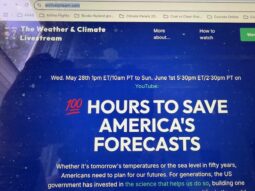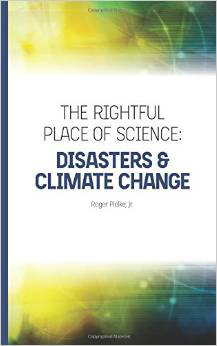 Scientists speak out for science (start time: 1:00) The Trump administration has been on a dizzying streak of slashing federal funding for scientific research, and firing thousands of federal scientists. Among the casualties is the National Weather Service, which supplies critical data from air balloons and climate models to develop weather forecasts. Many cities and agencies use these data to warn the public when extreme weather, such as a hurricane, is approaching. This crisis has prompted some climate scientists and meteorologists to organize a marathon five-day event, starting May 28, to educate the public about how vital their work is to society, and to mobilize people to take action. Host Susan Moran interviews two climate scientists who are on the organizing team of 100 Hours to Save America’s Forecasts. Margaret Duffy is a postdoctoral fellow at the University of California Berkeley, and Marc Alessi works with the Union of Concerned Scientists. (Click here to see the schedule.)
Scientists speak out for science (start time: 1:00) The Trump administration has been on a dizzying streak of slashing federal funding for scientific research, and firing thousands of federal scientists. Among the casualties is the National Weather Service, which supplies critical data from air balloons and climate models to develop weather forecasts. Many cities and agencies use these data to warn the public when extreme weather, such as a hurricane, is approaching. This crisis has prompted some climate scientists and meteorologists to organize a marathon five-day event, starting May 28, to educate the public about how vital their work is to society, and to mobilize people to take action. Host Susan Moran interviews two climate scientists who are on the organizing team of 100 Hours to Save America’s Forecasts. Margaret Duffy is a postdoctoral fellow at the University of California Berkeley, and Marc Alessi works with the Union of Concerned Scientists. (Click here to see the schedule.)
Hosts: Susan Moran, Joel Parker
Show Producer: Susan Moran
Engineer/ Executive Producer: Joel Parker
Listen to the show here:
Podcast: Play in new window | Download (Duration: 27:01 — 61.8MB)
Subscribe: RSS




